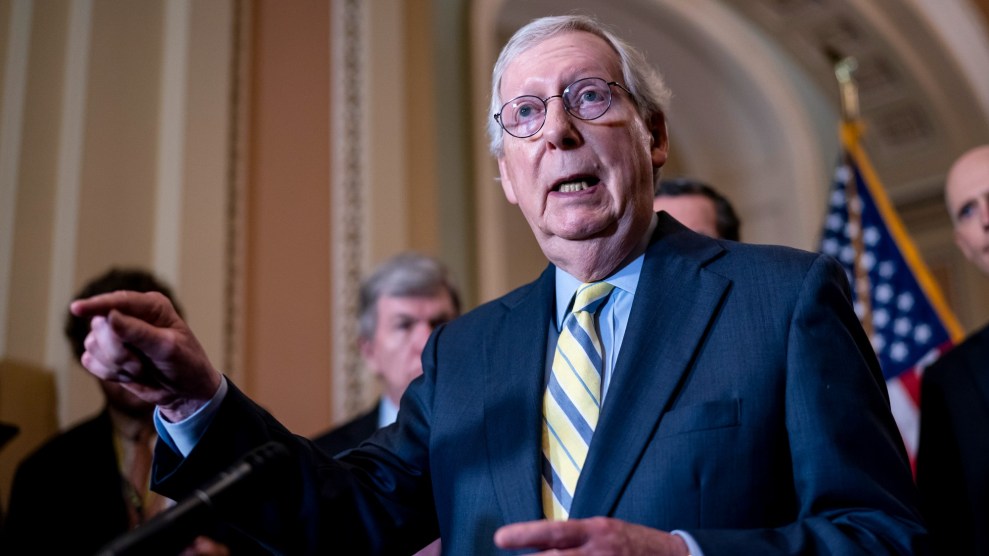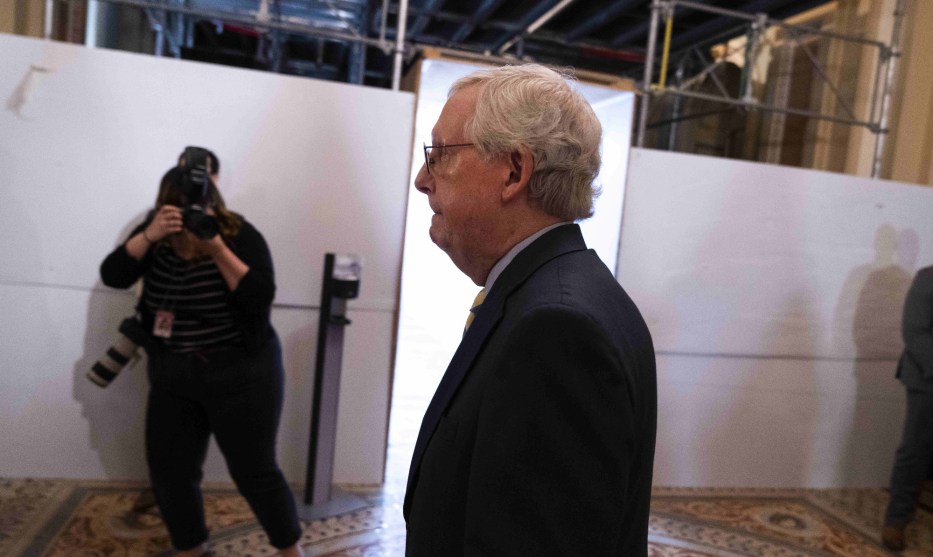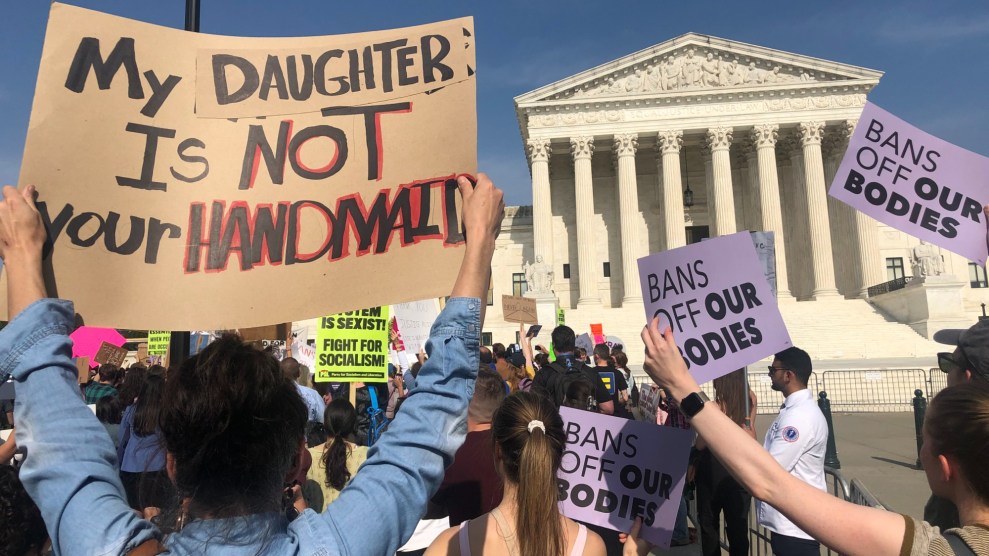
J. Scott Applewhite/AP
Since Politico published a draft Supreme Court opinion indicating that Roe v. Wade will likely be struck down, Republicans have been reluctant to take the usual victory tour, instead focusing their attention on just how the opinion leaked. But late last week, Sen. Mitch McConnell hinted at “possible” federal anti-abortion laws if Roe is overturned.
“If the leaked opinion became the final opinion, legislative bodies—not only at the state level but at the federal level—certainly could legislate in that area,” McConnell, the top Republican in the Senate, told USA Today. “I don’t think it’s much of a secret where Senate Republicans stand on that issue.”
A final Supreme Court ruling that scrapped Roe, McConnell said, would mark the “point that it should be resolved one way or another in the legislative process.” But he seemed to hedge his bets, acknowledging that a total ban “would depend on where the votes were.”
Thirteen states, including McConnell’s home state of Kentucky, have passed “trigger laws” in anticipation of Roe being struck down. The bills would ban abortion statewide as soon as the Supreme Court reversed the Roe ruling. The draft opinion still isn’t in effect, but its leak will only embolden other GOP-led state legislatures to follow suit.
Though Republican senators laid the groundwork for scrapping Roe by establishing a conservative supermajority on the Supreme Court, they have taken care to avoid making the case for a federal ban.
A strategy memo from the GOP’s Senate fundraising arm actually urged senators to “be the compassionate consensus builder on abortion policy.” Various Republican senators, in comments to the press, have downplayed the draft opinion, tried to shift focus to the leak itself, or, like Donald Trump, claimed that the ruling won’t “have a tremendous effect.”
It’s a bit weird for Republicans to avoid discussing a crowning achievement in their campaign to decimate reproductive rights. But the response from US voters has already been hostile, a potential liability for some Republicans in November’s midterm elections.
Nearly two-thirds of Americans want Roe v. Wade’s protections to remain in place, according to a CBS News poll released on Sunday. Close to 70 percent of respondents in that poll opposed a national abortion ban, including a majority of Republicans.
Even if a ban were on the table, McConnell would likely be forced to abandon the filibuster in order to pass it—an upheaval the senator told USA Today he wouldn’t support “for any subject.” Which would be easy to believe, if not for McConnell’s entire political history.
















